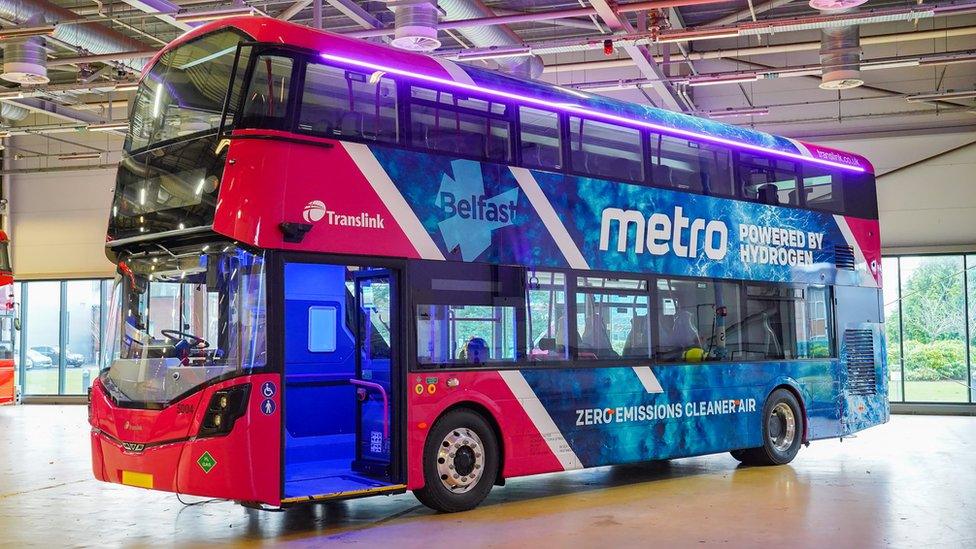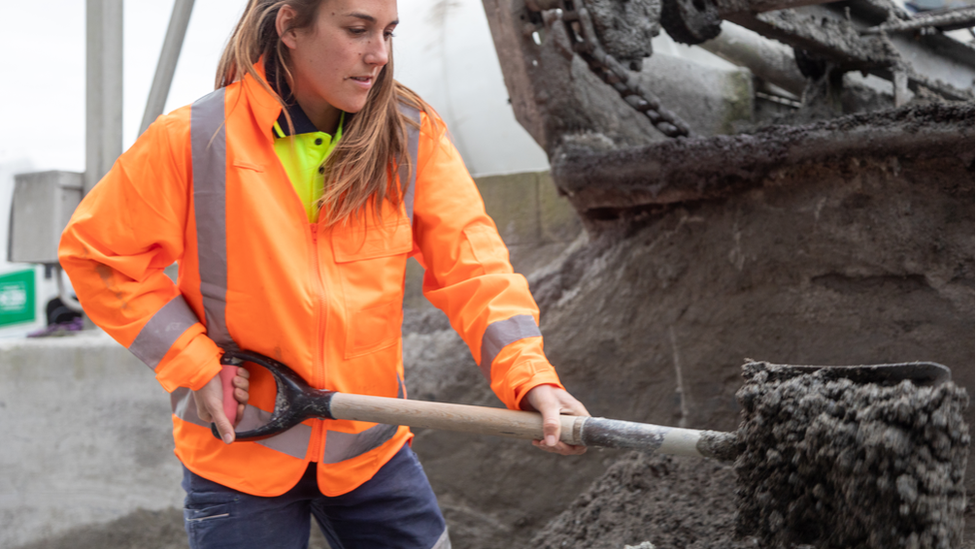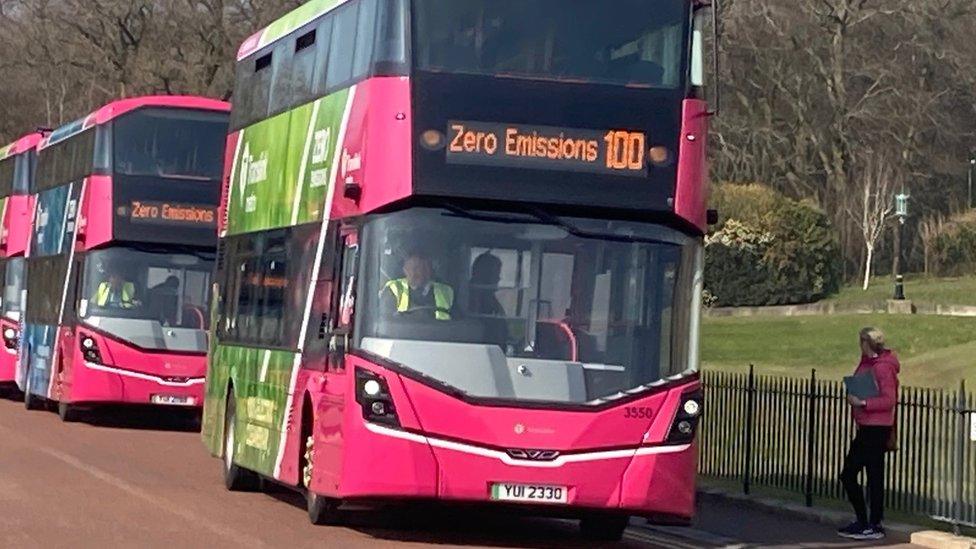Wrightbus receives £12m to produce green buses
- Published

Wrightbus is one of Ballymena's largest employers
Bus maker Wrightbus has received a £12m cash boost to produce green buses at its County Antrim factory.
The NextGenZEBs project will develop battery-electric and fuel-cell-powered buses to replace diesel engines.
It is part of a £77m joint government and industry-backed funding to develop zero-emission vehicles.
Meanwhile, it's been annouced two NI firms will split £3.6m in government funding to cut down on their use of fossil fuels.
FP McCann Ltd is getting £3.39m to improve the energy efficiency of crushing and concrete manufacturing at its Craigall Quarry in Kilrea.

Natural World Products in Dunmurry produces peat-free composts and soil conditioners.
It will put almost £300,000 towards replacing diesel-powered equipment with electric-powered equivalents.
The funding supports businesses which use high amounts of energy to clean up their manufacturing processes using low-carbon technologies.
It's a portion of a wider pot of £24.3m funding awarded through the UK government's Industrial Energy Transformation Fund.
A Natural World Products spokesperson said the funding had "allowed the company to make significant further greenhouse gas emissions savings at one of its key processing facilities".
'Filling a gap'
Wrightbus will work alongside Queen's University Belfast and Translink to deliver its NextGenZEBs project.
It is hoped that it will fill a gap in supply for zero-emission, multi-axle vehicles, as well as creating and safeguarding 883 jobs.
Jo Bamford, Wrightbus executive chairman, said: "When I took over the company, I was clear about my ambitions for it, both in terms of contributing to the UK's plans for net zero and in terms of supporting the British economy.
"We have always said that we will continue to drive forward with our zero-emissions vision."
In February, Wrightbus announced it is planning to develop a green hydrogen production facility.
Two months later, the Ballymena business secured an order to deliver 48 zero-emission buses for use in London by the end of this year.

Wrightbus will work alongside Queen's University Belfast and Translink to deliver the NextGenZEBs project
'Cutting-edge work'
In Northern Ireland, Wrightbus already supplies Translink with battery and hydrogen powered buses, the first of which hit the streets in March 2022.
The NextGenZEBs project is one of seven schemes across the UK with joint government and industry backing, ranging from work on green fire engines to a hydrogen fuel cell version of the Ford Transit van.
A Department for Business and Trade spokesperson said: "Zero-emission cars, vans and taxis are increasingly common but this cutting-edge work is going to mean clean, green vehicles designed and built in the UK can increasingly take on the toughest jobs too, from life-saving emergency services to haulage and public transport."
The funding has been awarded through the Advanced Propulsion Centre (APC) Collaborative Research and Development programme, which aims to build an end-to-end supply chain for zero-emission vehicles in the UK.
More than £38m of this investment comes from the government, backed by a further £38.7m from the automobile industry - taking the total to just over £77m.